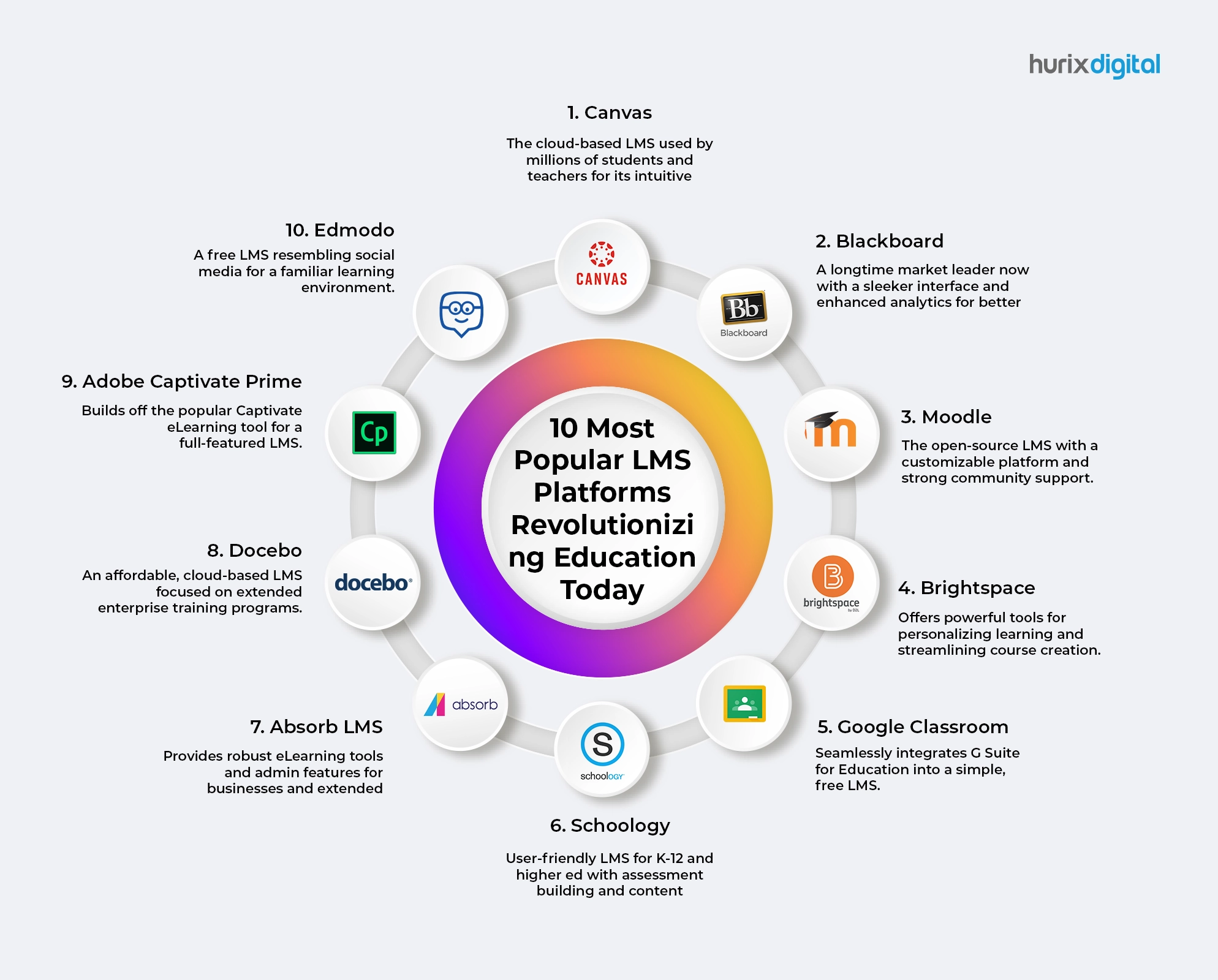Technology has changed how organizations and institutions manage learning. LMS platforms help deliver, track, and manage training programs efficiently. From schools to corporations, the right system enhances learning experiences and simplifies content management.
With so many options available, choosing the best LMS platform depends on user needs, integration capabilities, and scalability. Understanding key features can help make an informed decision.
Transform your training and education with Hurix Digital. Contact Us Now!

Why LMS Platforms Are Essential
Organizations use LMS platforms for various reasons, including:
- Centralized Learning – Store, manage, and deliver content in one place.
- Remote Accessibility – Learners can access materials from anywhere.
- Automated Tracking – Monitor progress, completion rates, and assessments.
- Customization – Personalize courses for different users and training needs.
Businesses and educational institutions benefit from structured learning management, reducing manual work while improving training outcomes.
Key Features to Look for in LMS Platforms
1. User-Friendly Interface
A system should be easy to navigate, reducing the learning curve for instructors and students.
2. Mobile Compatibility
With mobile learning on the rise, an LMS should support access on different devices.
3. Integration with Other Tools
Seamless integration with third-party applications, such as video conferencing and analytics, enhances functionality.
4. Customization and Personalization
An LMS should allow administrators to tailor content, quizzes, and certificates to fit training goals.
5. Data and Analytics
Robust reporting helps track learner engagement and identify areas for improvement.
6. Scalability
A system that supports growing users ensures long-term usability for businesses and institutions.
Choosing the Right LMS Platform
When selecting an LMS platform, consider:
✔ Business or educational requirements.
✔ Budget constraints and licensing models.
✔ Customer support and regular updates.
✔ Security features and data privacy.
Final Thoughts
The right LMS platform simplifies training, enhances engagement, and streamlines content management. Whether for corporate training or academic use, investing in a reliable system ensures efficient learning experiences.



